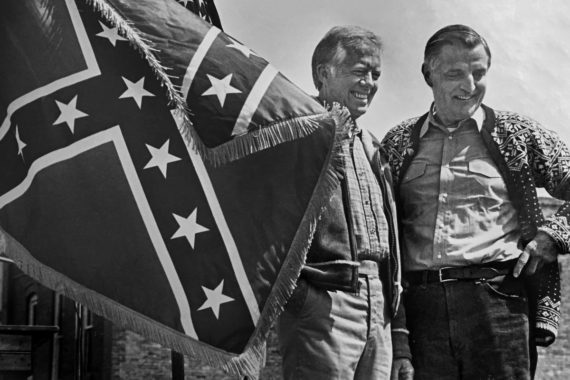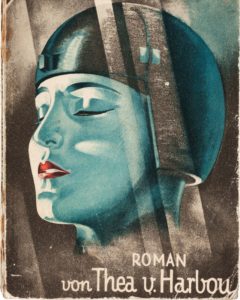 Jimmy Carter may have been the last Jeffersonian to be president. A recent article in the Washington Post labeled him the “Un-Celebrity President.” In either case, Carter is a reflection of a people and a place. He is the most authentic man elected president since Calvin Coolidge, and like Coolidge a true Christian gentleman.
Jimmy Carter may have been the last Jeffersonian to be president. A recent article in the Washington Post labeled him the “Un-Celebrity President.” In either case, Carter is a reflection of a people and a place. He is the most authentic man elected president since Calvin Coolidge, and like Coolidge a true Christian gentleman.
At the very minimum, Carter represented the Founders’ vision for a republican executive. He walked to his inaugural, refused to have “Hail to the Chief” played while he boarded Air Force One or Marine One, carried his own luggage, and when soundly defeated by Ronald Reagan went home to Plains, Georgia to the same two bedroom rancher he built in 1961. He’s never left.
It used to be standard practice for a president to go home and forget public affairs. George Washington had been almost dragged from Mt. Vernon to assume office and gladly resumed the life of a planter when he stepped down in 1797. John Adams snubbed Jefferson in 1801 by taking what amounted to a public bus back to Massachusetts, but he never again left his home State and stayed away from the public eye. Jefferson resumed his very busy life at Monticello in 1809, happy to leave behind the nasty busy of politics. James Madison spent his last years editing his papers and correspondence and was briefly involved in Virginia politics, but he only offered policy positions when asked in private letters. James Monroe went home and was never heard from again. That was the Founders’ executive, the republican who puts down the plow and enters office out of duty but who quietly goes home and resumes a private life once their time in Washington is over.
Carter, of course, was the consummate outsider and probably the last agrarian who will ever hold that office. Other than Thomas Jefferson’s Notes on the State of Virginia, his An Hour before Daylight is the only agrarian treatise written by a president. Carter admired Harry Truman, perhaps the most middle class man to ever hold the office. Both men reflected positively on Southern heroes, their Southern homes, and their Confederate ancestors. But unlike Truman, Carter was never a political thug who would sink to purchasing votes for power. He was probably too nice for Washington. That should be a badge of honor. Truman would kneecap his opponent and then lie about it. Carter refused to get in the gutter.
Certainly Carter had his problems as president, but most of this involved perception not policy. Carter can be credited with beginning the deregulation of the Ronald Reagan era and with installing Paul Volcker as Federal Reserve chairman, a move that helped end the destructive inflation of the 1970s. He also pushed for American energy independence long before it was trendy. Carter’s record on taxation and foreign policy are mixed at best, and no one would credit him with doing anything to end the Cold War, but he was as interested in negotiation and diplomacy as Reagan but without a willing partner in Moscow. Carter’s insistence that people put on a sweater when it was cold and turn down the thermostat rubbed the consumerist American culture the wrong way, but that was the Southern man in him. “Environmentalism” was in fact just a Northern distortion of Southern agrarian. Carter could eloquently discuss Civil Rights and race because unlike most men who lived at Pennsylvania Ave., he had been around African-Americans his entire life. He was a reconciliationist in Washington, something most ideologues could not and cannot understand.
Family remained important to Jimmy Carter and his brother Billy shared the public eye, perhaps often stealing the show. Billy drove a tow truck, smoked and drank a lot of beer, and waxed philosophic about life at his gas station. He was even less of a politician than Jimmy and that’s saying something. Billy was as unfiltered as the cigarettes he smoked. Jimmy Carter dedicated an entire chapter to the Carter lineage in his An Hour Before Daylight. Southerners would understand. It’s not what you do but where you’re from and who was your grandaddy.
Carter smiled and made poor public speeches. It was Carter who first “felt your pain.” Bill Clinton just made it more famous. When Reagan gave the opening remarks at the ribbon cutting for Carter’s Presidential Library, it seemed as if the clouds parted and the heaven’s opened. Carter strode to the podium when Reagan finished and humbly remarked, “That’s why you won in November 1980, and I lost.”
It’s fitting that Carter never profited from his time as president. His books don’t sell much. He scribbles, paints, and makes furniture, teaches a bi-monthly Sunday school class, works with charity and humanitarian organizations, and walks around town with Rosalynn. They have been married for seventy-two years, and she is as Southern as Jimmy. Their house is unremarkable, and his “museum” is nothing more than the former Plains public school. He flies coach and the American taxpayer spends the less on Carter’s retirement than any other living president. Carter is just another citizen of his home town, just as Jefferson became just another citizen of Charlottesville.
People often remark that no one cares what Jimmy Carter thinks when he is asked to comment on current events. He is castigated by those on the “right,” and generally ignored by those on the “left.” His loser image in his most enduring legacy. Perhaps that’s fitting. After all, the South has been tarred with the “loser” moniker since 1865. Carter as a man is too good for the swamp, just as the Southern people are too good for the rest of America. Carter may not have always been right in D.C., but he was always Southern, and that more than anything else is why the rest of America couldn’t and still can’t understand him and why the South still deserves him.
Written by Brion McClanahan and published by the Abbeville Institute ~ August 20, 2018.
 FAIR USE NOTICE: This site contains copyrighted material the use of which has not always been specifically authorized by the copyright owner. We are making such material available in our efforts to advance understanding of environmental, political, human rights, economic, democracy, scientific, and social justice issues, etc. We believe this constitutes a ‘fair use’ of any such copyrighted material as provided for in section 107 of the US Copyright Law. In accordance with Title 17 U. S. C. Section 107, the material on this site is distributed without profit to those who have expressed a prior interest in receiving the included information for research and educational purposes. For more information go to: http://www.law.cornell.edu/uscode/17/107.shtml
FAIR USE NOTICE: This site contains copyrighted material the use of which has not always been specifically authorized by the copyright owner. We are making such material available in our efforts to advance understanding of environmental, political, human rights, economic, democracy, scientific, and social justice issues, etc. We believe this constitutes a ‘fair use’ of any such copyrighted material as provided for in section 107 of the US Copyright Law. In accordance with Title 17 U. S. C. Section 107, the material on this site is distributed without profit to those who have expressed a prior interest in receiving the included information for research and educational purposes. For more information go to: http://www.law.cornell.edu/uscode/17/107.shtml

Am I wrong that Pres. Carter has Illegally went abroad; had left his home sweet home and fireside and conducted state department level negotiations with other nations all in the guise of attempted peace talks and under the title of Mr. President?
Good intentions, but verging on senile efforts.
I agree with you Jim, however there are good and bad sides to everyone. In my opinion – as with nearly all of our presidents for a very long time – he was chosen to serve a particular purpose. He was then surrounded by plants to insure that he would be held in check – but something backfired – when he successfully brought Egypt and Israel together to negotiate a Peace treaty. Since leaving office, Carter has involved himself in many International issues – but to me his greatest accomplishment has been his continued efforts with Habitat for Humanity. The rest of these ‘presidents’ (small ‘p’) go off to other endeavors. Carter has ridden off into the sunset as a real human being, and I applaud him for it.
Oh – and he has remained quite outspoken against Israel’s continued horrific policies and holocaust against the Palestinians. I have read his books. Why – because I was a Democrat? No – because I found him an interesting human being.
Thanks for your input.